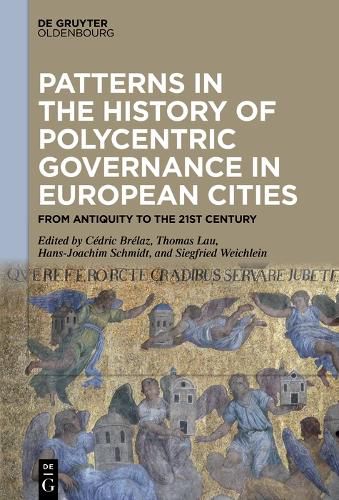Readings Newsletter
Become a Readings Member to make your shopping experience even easier.
Sign in or sign up for free!
You’re not far away from qualifying for FREE standard shipping within Australia
You’ve qualified for FREE standard shipping within Australia
The cart is loading…






The autonomy granted to local communities (such as towns, municipalities, and city-states) by larger, central powers (such as empires, kings, lords, and central states) is a recurrent feature of European history over time, from Antiquity to the contemporary period. This volume explores the political, social, and cultural aspects of this feature in a diachronic and comparative perspective, from the Roman Empire to today's city partnerships. To this end, it uses the concept of polycentric governance. Originally developed by political economist Vincent Ostrom in the 1960s and then expanded by the 2009 winner of the Nobel Prize in Economics, political scientist Elinor Ostrom, this concept characterises the interdependent system of relations between different actors involved in a process and, for that reason, it is frequently used in policy studies. This volume applies the concept of polycentric governance to historical studies as a heuristic device to analyse the multilayer systems into which cities were integrated at various points in European history, as well as the implications of the coexistence of different political structures. Fourteen chapters examine the structures, the dynamics, and the discourse of polycentric governance through various case studies from the Roman Empire, from medieval towns, from early modern Europe, and from contemporary cities. The volume suggests that for extended periods of time throughout European history, polycentric governance has played a pivotal role in the organisation and distribution of political power.
$9.00 standard shipping within Australia
FREE standard shipping within Australia for orders over $100.00
Express & International shipping calculated at checkout
The autonomy granted to local communities (such as towns, municipalities, and city-states) by larger, central powers (such as empires, kings, lords, and central states) is a recurrent feature of European history over time, from Antiquity to the contemporary period. This volume explores the political, social, and cultural aspects of this feature in a diachronic and comparative perspective, from the Roman Empire to today's city partnerships. To this end, it uses the concept of polycentric governance. Originally developed by political economist Vincent Ostrom in the 1960s and then expanded by the 2009 winner of the Nobel Prize in Economics, political scientist Elinor Ostrom, this concept characterises the interdependent system of relations between different actors involved in a process and, for that reason, it is frequently used in policy studies. This volume applies the concept of polycentric governance to historical studies as a heuristic device to analyse the multilayer systems into which cities were integrated at various points in European history, as well as the implications of the coexistence of different political structures. Fourteen chapters examine the structures, the dynamics, and the discourse of polycentric governance through various case studies from the Roman Empire, from medieval towns, from early modern Europe, and from contemporary cities. The volume suggests that for extended periods of time throughout European history, polycentric governance has played a pivotal role in the organisation and distribution of political power.